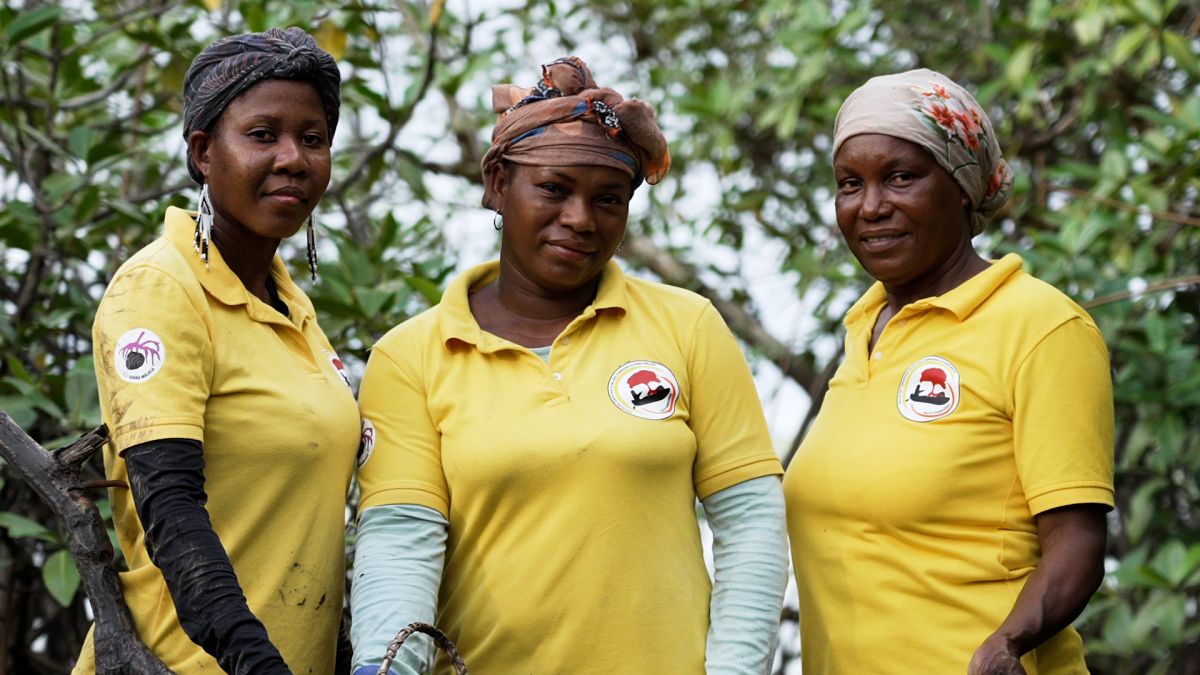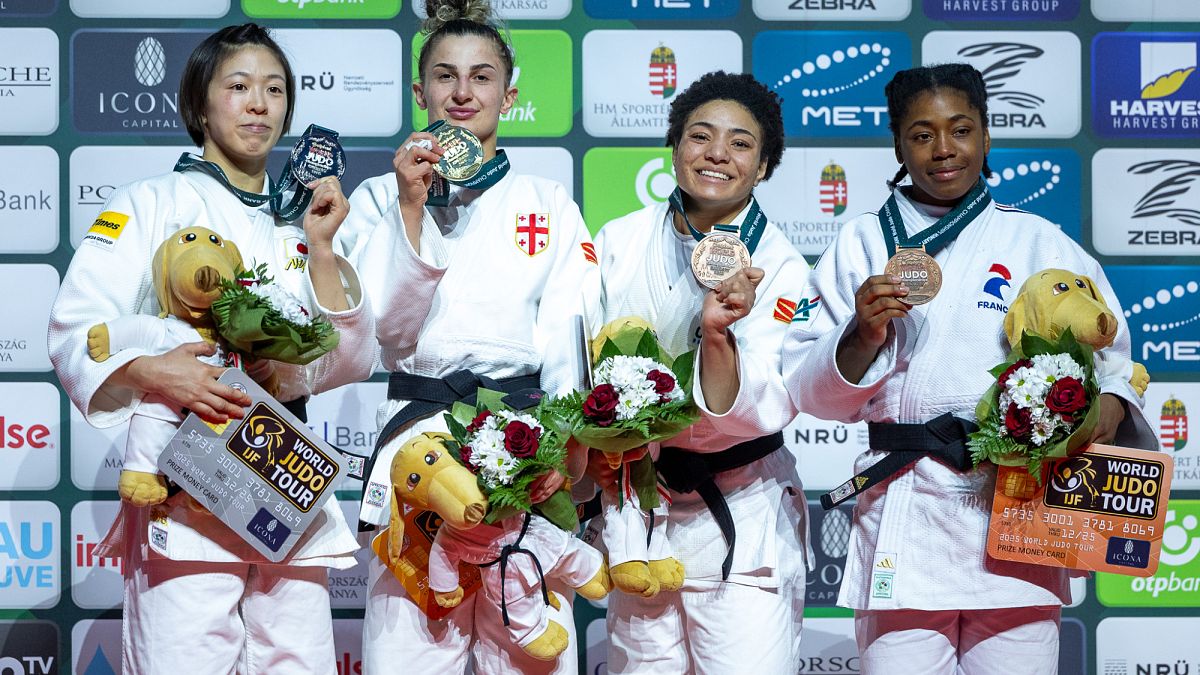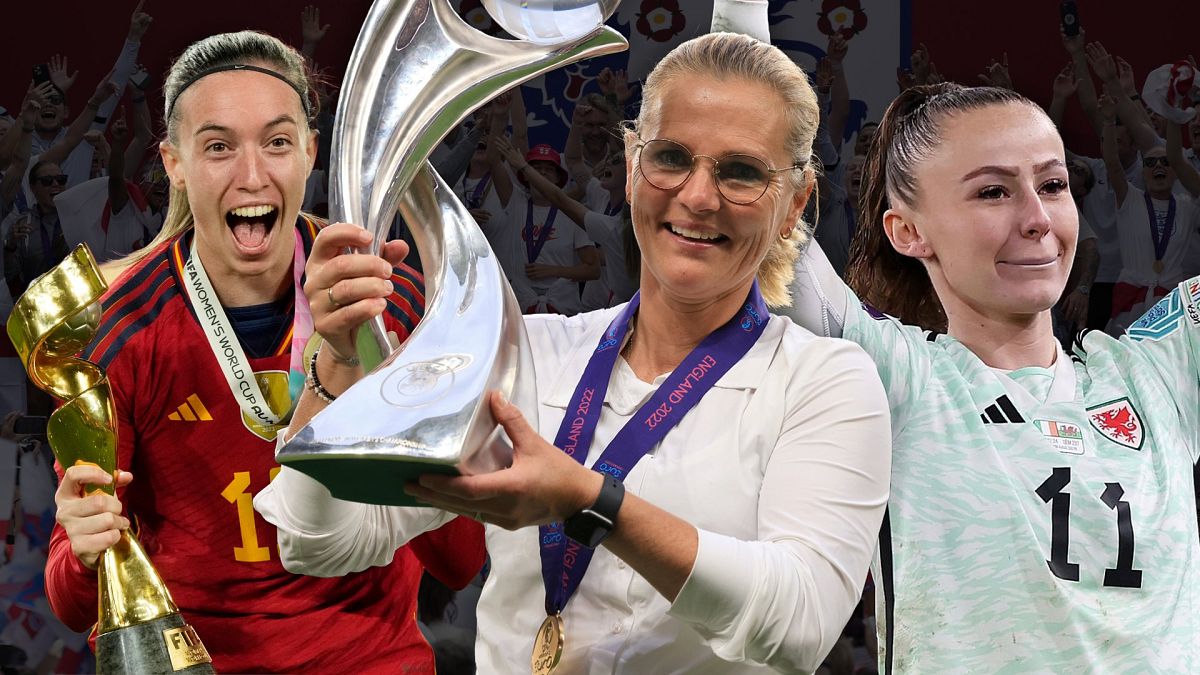Silencing the guns, not the birds: the EU and Colombia on a mission to make ‘Peace with nature’

In this episode of The Road to Green, we travel to Colombia, host of the COP16 conference on biodiversity and Europe’s partner in efforts to bring about peace and restore nature.
The Bahia Malaga Natural Park, located on the Colombian Pacific coast, is home to one of the world’s richest areas of biodiversity. Around 1,400 species have been identified in this large bay, where turtles swim alongside the whales that come to breed each year.
‘Our ancestors always told us that our duty was to preserve this land and leave it in good shape for future generations’, explains Miller Valencia, a resident of La Plata, as he takes us by boat to the island where this community of people of African descent has lived for more than 300 years.
The community is famous for its fisherwomen who catch piangua, a shellfish that is highly prized in Colombia. The women of the community skilfully make their way through the dense mangrove swamps and plunge their hands into the mud at low tide to harvest this precious seafood.
A model of sustainable fishing
But this age-old activity is under threat. ‘Our grandparents used to catch 200 dozen pianguas in two or three hours. Today, we only catch 20 dozen at most. That’s a lot less’, explains Rosa, a member of the Raíces Piangüeras fishing association.
Using a piangometer, she measures the shellfish to ensure that only adult specimens that have already reproduced are removed. But Rosa explains that the inhabitants of other regions are not so careful.
‘They collect all the shellfish, large and small. If they are no longer able to reproduce, it means that supplies will be exhausted’, says Rosa, who believes that ‘this natural resource will provide us with a living for a long time to come, if we take care of it’.
The European Union is supporting these women (known as ‘piangueras’) through its local sustainable development programme, which involves Indigenous and Afro-Colombian communities in the management of conservation efforts.
The project involves developing the piangua value chain so that it can be processed and packaged locally and sold at a better price. At present, the shellfish is mainly sold to a merchant who exports it at a low price to Ecuador.
The opportunities of sustainable tourism
Another of the association’s aims has been to create a ‘piangua route’ to turn the shellfish into a tourist attraction. Indigenous houses have been set up to accommodate tourists, with the backing of the community council, which has made the preservation of nature a prerequisite for any economic activity.
‘The idea is to enable tourists to experience the culture of the local Black community. They can learn how to fish, how to collect pingua, so that we can promote our ancestral practices’, explains Santiago Valencia, a leader of the La Plata community council.
We don’t want tourism to dictate what goes on in the area, rather we see tourism as a means of helping others to get to know us as we are’, he adds.
In its fight to protect nature, the community also receives support from NGOs such as the WWF and from universities. Other projects include counting and observing wild animals such as turtles and leopards.
Peace with nature
Peace with nature was the theme of the COP16 conference on biodiversity, held in Cali from 21 October to 2 November.
One of the main breakthroughs was the inclusion of Indigenous peoples and local communities in the Kunming-Montreal Global Biodiversity Framework (GBF), through the creation of a subsidiary body.
‘We need to recognise the role of Indigenous peoples and local communities, because they teach us how to do things better’, Florika Fink-Hooijer, Director General of the European Commission’s Department of the Environment, told Euronews.
They understand and respect nature, whereas we take it for granted. The European Union funds projects that support them in this role, because they are also champions of nature, which can be a risky position’, she added.
The international negotiations at COP16 also led to progress in the implementation of the GBF by the signatory states. Important decisions on the financing of biodiversity were postponed until COP17, which will take place in Yerevan, Armenia, in 2026.
Source: Euro News














